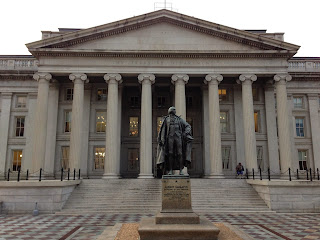Colleagues of Prime Minister Shinzo Abe in leading parties
explain that the main reason for dissolution of the House of Representatives is
to hear public voices on his possible decision of rescheduling consumption tax
hike. Only a few people who are familiar with behavior of politicians believe
in that story. Decisions of dissolution have always been political maneuvers.
Abe obviously looks at extending his term as long as possible for his big
project, amendment of the Constitution of Japan.
Abe has been suffering from money scandals of Ministers in
his cabinet. Stepping down of Minister of Economy, Trade and Indutry, Yuko
Obuchi, and Minister of Justice, Midori Matsushima, was unpredictable accident
in the handling of his administration. As its collateral damage, other
Ministers were also included in turmoil of money scandals, which seriously
eroded credibility of Abe administration. It was apparent that Abe wanted to
put that vicious circle to an end.
There will be no single issue that dramatically boosts Abe
administration in coming months. The government is going to decide resumption
of nuclear power reactor in Sendai plant as early as the beginning of next
year, which will cause great protest from anti-nuclear groups, because Abe has
been acknowledged as reluctant to explore renewable energy. It is highly likely
for Abe to lose its supporting rate after the decision.
Having no alternative choice, Abe needs to make a deal in
Trans-Pacific Partnership, the issue which Barack Obama administration has to
achieve positive outcome for taming the Congress with GOP majority in both
Houses. It is inevitable that certain amount of agricultural voters will leave
Liberal Democratic Party because of its betrayal against them.
Abe believes in a possibility that he can cover all those
negative elements in the future by early election, if he wins. Before excitement
of election goes away, he is going to appeal the legitimacy of his agenda to be
endorsed by the voters. If he wins four more years, it will be the longer
administration than his political mentor, Jun-ichiro Koizumi, had in early
2000s.
What he wants to do in next term is amendment of the
Constitution. After he used the method of reinterpretation to exercise
collective self-defense, the momentum for the amendment seems to have declined.
Abe needed certain period of time for discussion on what points the
Constitution should be changed. But after all, it is the story if Abe can win.
There is no guarantee that Abe can maintain his administration after the
election so far.

No comments:
Post a Comment